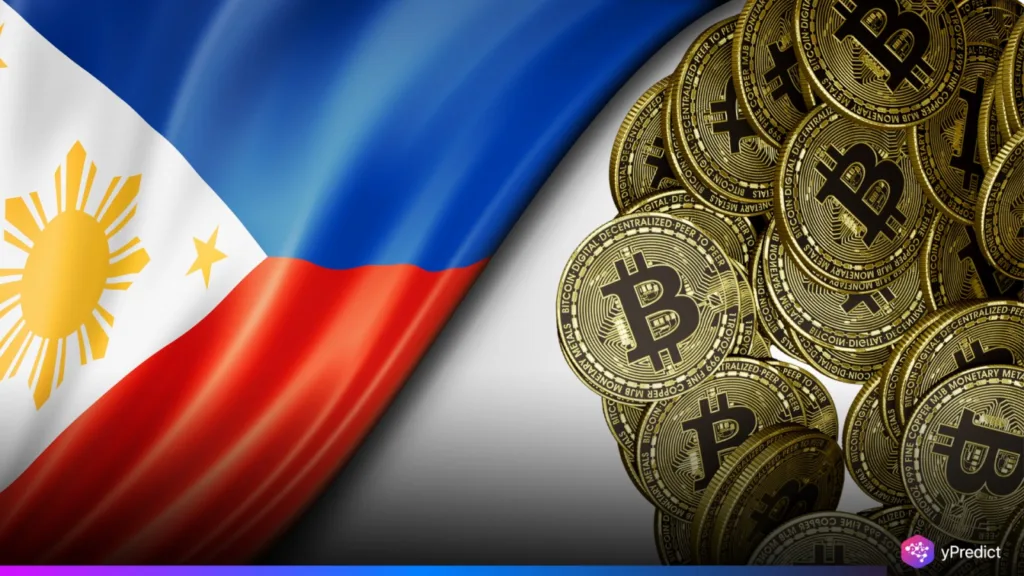
With lawmakers moving toward a proposed Strategic Bitcoin Reserve for the Philippines, that country has stepped into the spotlight of international digital finance. This move reflects a worldwide wave of Bitcoin adoption, reminiscent of El Salvador’s early move in 2021 and the BITCOIN Act underway in the U.S. next year. If successful, the Philippines may be in line with other countries looking at Bitcoin as a venue for positioning Bitcoin as a strategic asset.
Global Moves Toward Bitcoin Adoption
The proposal aligns with activities occurring patterns throughout the planet. El Salvador, which first put in place the adoption of Bitcoin as legal tender in 2021, is continuing to influence the future directions of other emerging economies. Meanwhile, the United States has stepped up its activities with the White House issuing a direction in March 2025 for the U.S. Strategic Bitcoin Reserve.
The Crypto policies about Switzerland have set yet another precedent. The idea that the country might hold Bitcoin at a public fund level has opened up the same discussions in Asia. This news, in particular, about the Philippines serves as an example of how regional proposals on financial independence and digital asset practice are being sparked through global decisions.
Philippines Pushes Forward Amid Regulatory Challenges
The proposed Buy 10000 BTC transaction is about acquiring 10,000 BTC valued at approximately $1.1 billion, assuming Bitcoin is at a price of around $110,000 in the middle of 2025, and with a reserve of that magnitude, the Philippines positions itself as the regional leader in assets, but has challenges to navigate.
The Bangko Sentral ng Pilipinas (BSP) has remarked that they support innovation in the financial sectors, but their regulatory stance seems to be restrained enforcement of unregistered exchanges, and therefore they are addressing unlicensed trading platforms taking place beyond their regulatory oversight. And the Philippines SEC has previously warned citizens of the risks associated with unregulated exchanges, which could impact helping the government to find the speed that balances their dreams with staying cautious in such ambitions.
Regional Influence of Switzerland and the U.S.
The Philippines is not operating in isolation. The combined influence of Switzerland’s Crypto policies and U.S. strategies has created a blueprint for other countries. Washington’s efforts to formalize reserves mark a turning point in legitimizing Bitcoin as part of sovereign wealth strategies.
Switzerland, already a hub for digital finance, has demonstrated how regulated environments can still foster innovation. With Bitcoin in public funds, compliance and growth options have been taken as a path of least resistance when two reconciled notions align. This two-fold strategy strongly appeals to the Philippines.
Financial and Political Stakes Ahead
If passed, the Philippine Bitcoin Reserve would mark one of the largest crypto-based financial commitments in Southeast Asia. At current prices, the $1.1 billion investment would cement Bitcoin as a cornerstone of national strategy. Lawmakers must persuade skeptics who point to Bitcoin’s volatility and the fiscal realities of the country.
Regulators stress the threats of unregistered exchanges and potential capital flight. Supporters argue it represents a potential path for long-term resiliency and decreasing the reliance of monetary policy on foreign reserves held in traditional currencies. The question highlights the broader question of how countries position themselves in this new financial order. In a world of choices and potential lessons from countries such as El Salvador, the U.S., and Switzerland, the Philippines must decide what options it has now and in the future.
Outlook
The Philippines’ vision of a Strategic Bitcoin Reserve represents a key inflection point for Southeast Asia’s role in global digital finance. The plan capitalizes on the momentum behind Bitcoin adoption across the world, but has the added weight that the country will have to navigate both regulatory vigilance and economic responsibilities.
With Switzerland’s Crypto policies offering a regulatory model and U.S. initiatives setting geopolitical tone, the Philippines’ decision will carry weight beyond its borders. Whether the reserve materializes or not, the debate underscores how digital assets are no longer a peripheral issue but a core subject of national strategy.






